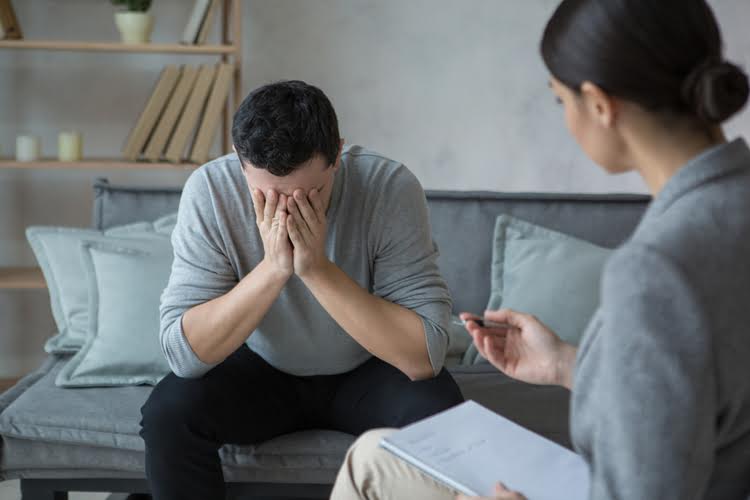Family members can create a sense of
community for those in addiction recovery by connecting with other families in addiction support groups. These groups can provide a sense of belonging and connection, as well as practical support. Families can also connect with addiction recovery resources in their local community, such as addiction recovery centers or 12-step programs. This can help individuals feel supported and connected to others working on their addiction recovery.
You may also have developed some unhealthy ways of adjusting to the changes addiction has created in your life. Ask how the drug is helping because people use psychoactive substances for a reason, like physical or mental pain, or trauma too. It’s not the best of solutions, but likely is the best solution they have found so far. You may also learn more about how to support a loved one in a family support program, such as Al-Anon, or Nar-Anon, for drugs other than alcohol. It is one part of a bigger picture to help you overcome drug and alcohol addiction.
Office of Addiction Services and Supports
Addiction recovery is a difficult process, but with the support of loved ones, it can be made easier. Family members and close friends can provide a vital support system while you
recover from addiction. A support system can provide additional encouragement, connection and community, financial assistance, and more. The Blanchard Institute cultivates a safe, comfortable environment for clients and families across North Carolina to be emotionally connected to their treatment provider. Your journey to recovery doesn’t end with day treatment or outpatient, once you’re with Blanchard, you’re always with Blanchard. Family counseling and therapy sessions help loved ones better understand addiction and its effects on their family.
- Different treatment agencies have done well to develop a full continuum of services that includes, detox, residential, outpatient, recovery coaching, and community support services, to help individual clients achieve the goal of long-term recovery.
- Jennifer brings over 25 years of nursing experience to the Lodge ranging from public health to corporate health.
The goal of this conjoint approach to screening is to increase the likelihood of case detection and set the stage for family involvement in subsequent stages of the continuum. Evidence suggests that parental reports are fair-to-good proxy measures of youth substance use behavior (McGillicuddy et al., 2012), though they typically underestimate to some degree (Fisher et al., 2006). Parental report may be particularly useful when youth have minimized self-report of use or impairment. Ideally, family screening tools could help to triage youth more accurately into risk categories and increase early identification of youth who have initiated SU. Given the paucity of well-validated family screening tools, identifying and validating such measures is a priority to promote family involvement in the screening stage of the continuum. During treatment, an individual works with the clinical team to help soothe their fight, flight, and/or freeze response and progress toward sobriety.
Getting A Loved One into Treatment
Understanding these aspects can profoundly impact the recovery process, offering hope and guidance to those on the path to sobriety. The Recovery Village aims to improve the quality of life for people struggling with substance use or mental health disorder with fact-based content about the nature of behavioral health conditions, treatment options and their related outcomes. We publish material family support in addiction recovery that is researched, cited, edited and reviewed by licensed medical professionals. The information we provide is not intended to be a substitute for professional medical advice, diagnosis or treatment. It should not be used in place of the advice of your physician or other qualified healthcare providers. A person working to overcome drug and alcohol addiction has to face many challenges.
It’s no surprise, then, that some families in the recovery process struggle with sleep. Parts of their brains are ready and waiting for the next nighttime crisis to arise. It’s also important to manage expectations for yourself and other family members. Families in early recovery may make mistakes, and they may not be their ideal selves, but they can still enjoy their time together and actively support one another. Even if things aren’t “perfect,” they can still be more meaningful as you work together toward a drug-free life.
Tips for Families Dealing With an Addict
In the past decade several literature reviews and meta-analytic studies have emphasized the top-shelf effectiveness of family-based treatment for SUD across the lifespan. Family-based treatment addresses family skills (e.g., communication, coping, problem-solving), family relationships and processes, and family member relations with key extrafamilial persons and systems (Hogue et al., in press). Hogue and colleagues (2018) concluded in a systematic literature review that family therapy is a well-established outpatient approach for adolescent SU that has accumulated the largest evidence base compared to all other approaches. Ariss and Fairbairn (2020) completed a meta-analysis of family-involved treatments that condensed data from 2,115 adolescents and adults across 16 independent trials.
- Prior to changing careers into the counseling field, Thérèse worked in the investment and securities field for over 20 years in sales, management and compliance, and supervisory roles.
- Donna and Jackie are certified as a Canine Assisted Therapy Team CAT team and Mental Health and Trauma Response (MHTR) team.
- According to research, those who have good family support are more likely to remain in recovery and avoid relapse.
- Following are some basic suggestions for supporting your addict in recovery.
- Thus, this article will often refer to “alcoholics” as people with AUD or alcohol misuse.
- Family members and close friends can provide a vital support system while you
recover from addiction.
You might be the one living with alcohol use disorder, but your behaviors and lifestyle may have shaped, and continue to shape, the lives of those closest to you. When you feel exasperated and furious, and you are losing someone you care about to drugs, it’s very possible you will raise your voice, yell or scream, and go head to head. Every fight drives a person with an addiction farther from the support they need, namely you. Private sessions typically follow a skills-based format, in which caregivers learn more about how to deal with destructive thoughts and habits developed during years of addictive behavior.
Additional Resources & Support For Families of Addicts
In the journey toward recovery, the role of family support is paramount, and family support in addiction recovery may look different for every situation. This article deeply explores the multifaceted role of families in addiction recovery, highlighting the significance of emotional support, education, communication, and long-term commitment. Without such accounting, initiatives to increase family involvement in those contexts are as likely to pile-up harms as to promote recovery. Providers should also be attuned to potential harms, but also conditional benefits, of involving family members in contexts of child abuse/neglect, family violence, and other family-related trauma.

Michelle came to us in February of 2022 after she relocated her residence from Bergen County. She has assisted the launch of New Jersey’s Certified Peer Recovery Specialist Program by being one of the first to be trained and certified to work alongside the Bergen County Police Departments to https://ecosoberhouse.com/ meet overdose victims and families at the emergency room. She and her husband share a passion for people suffering from substance use and work alongside a street ministry called “Desire 4 Hope” which addresses addiction and homelessness on the street with a “boots to the ground” intensity.
Helping a Loved One
The comprehensive treatment plan aims to help the individual recover from the addiction and helps family members cope with the effects of addiction. Your family members can offer practical assistance when needed, like running errands or providing transportation. They may also help you with daily tasks such as grocery shopping or preparing meals.
She was also given the opportunity to become a Certified Trauma Therapist through the Spirit to Spirit program with Judy Crane at The Refuge in Ocala, Florida. She worked as a Primary Counselor at Alina Lodge until 2021 when she decided to retire. Recognizing that she would not be happy being home all the time and not seeing her colleagues, she has been working part-time as a trauma and eating disorder counselor for both the Men and Women’s communities. Elaine comes to Alina Lodge as a former guest with a love for our organization and its rich history in addiction recovery.
